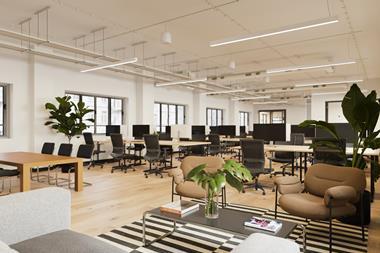Editor: I echo the optimism shared by Manish Chande in his recent article regarding the growth of the UK technology sector and its potential to underpin demand for workspace in the years ahead.

The UK tech sector currently attracts more tech investment than any other European market, and has continued to grow despite the challenges of the past 18 months. The health of this sector, coupled with the need for tech players to find space that aids collaboration and creativity, presents a huge leasing opportunity for workspace providers, as Manish rightly said.
However, there is work to be done if landlords are to capitalise. When it comes to workspace, the reality is that no occupiers have higher expectations than tech companies. The tech campus culture, driven by the likes of Google and Facebook, has filtered through to the wider market, elevating expectations for amenities and services.
The working environment has also become a key weapon for tech firms in the war to attract top talent. As a result, the bar for workspace continues to rise within the tech sector, putting pressure on landlords to meet ever-growing expectations.
Naturally, this means providing well-designed physical assets that cater to spatial requirements, but there’s much more to it than that. Given the very sector they operate in, tech firms expect connected, tech-enabled environments that offer seamless digital interaction with the space around them. The reality is that only tech-driven buildings will meet the lofty expectations of tech occupiers.
Landlords that reposition physical assets and embrace tenant-serving technology across their portfolios will be well set to take advantage of the enormous opportunity the booming UK tech sector presents. Conversely, those that stick to an outdated physical asset-only approach will miss out.
Ikenna Nweke, head of sales for UK and Ireland, Office App






























No comments yet